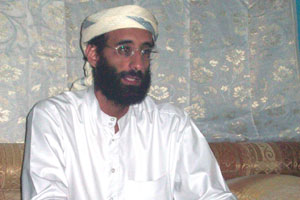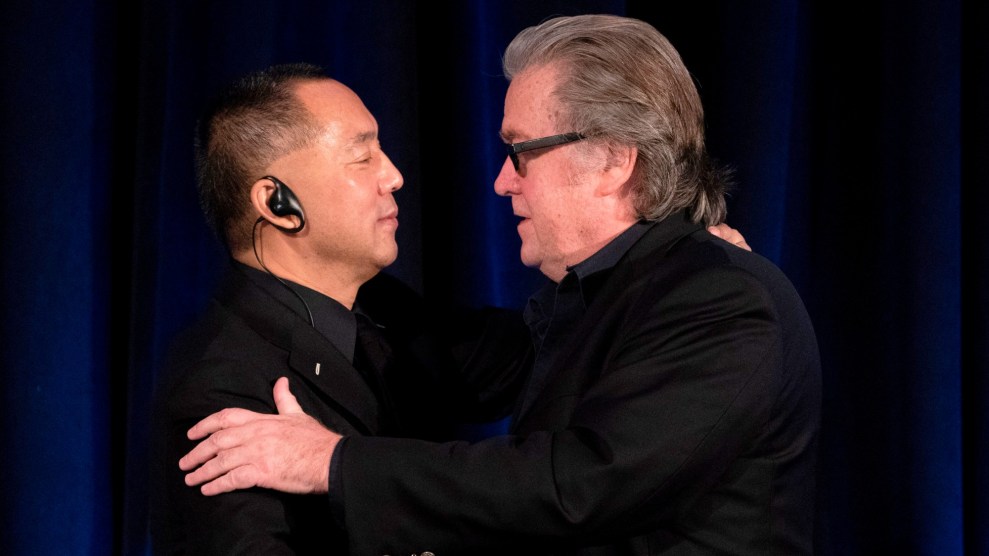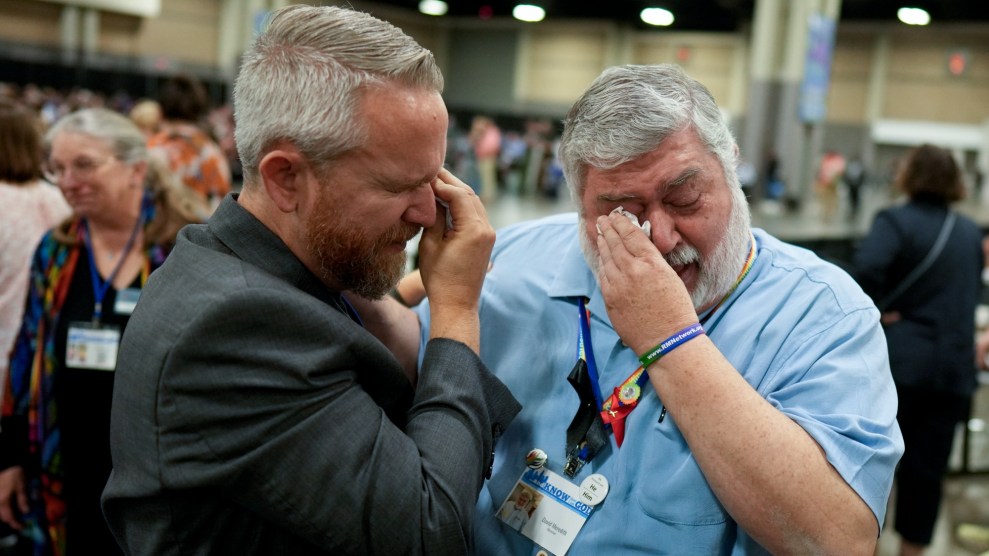The Obama administration may charge an American Muslim cleric living in Yemen with terrorism-related crimes, the AP reports. That’s odd, because the Obama administration already admitted earlier this year that it has targeted the cleric, Anwar al-Awlaki, for death. Al-Awlaki, who was born in the United States, is accused of inspiring the Christmas Day bomber and the Fort Hood shootings, as well as “recruiting and motivating terrorists.” The Justice Department is considering charges against the cleric “in case the CIA fails to kill him,” according to the AP. Normally, the government is supposed to charge and convict American citizens before it orders their executions. But in Barack Obama’s war on terror, that’s not always the case.
So just in case you don’t have this straight: Plan A is just having the CIA kill this guy. If that doesn’t work, Plan B is actually charging him with a crime.
Anyway, the American Civil Liberties Union and the Center for Consitutional Rights, two groups that are suing the Obama administration over its “targeted killing” program—including the targeting of al-Awlaki—issued a joint statement in response to the AP report:
Our organizations have long stated that if the government has evidence that Anwar Al-Aulaqi is involved in terrorist activity, it should present that evidence to a court – not authorize his execution without charge or trial. Now, months after the government announced its intent to kill Al-Aulaqi, it may finally bring charges against him. This would be a step in the right direction. The constitutional guarantee of due process relies on the critical distinction between allegations and evidence. If the reports that charges may be brought against Al-Aulaqi are true, the fact that it has taken the government this long – months after having announced his death sentence – suggests that, in this case, the government’s allegations were far ahead of its evidence.
While bringing charges against Al-Aulaqi based on credible evidence would be a step in the right direction, it would not mean that he could now be targeted for killing without trial. It is well established that the government cannot use extrajudicial killing to punish people for past acts, but only to prevent grave and imminent threats. A criminal charge for past crimes does not provide a license to kill.
We continue to believe that the courts must play a role in establishing legal standards for when the government can take the life of one of its own citizens without charge or trial. For that reason, we will continue with our litigation.
The rights groups are probably just pissing into the wind. Their lawsuit doesn’t have much hope. In a world when the just-the-facts-please Associated Press can describe the government’s plans to bring someone to court “in case the CIA fails to kill him,” and the public barely blinks, it’s hard to feel confident about the fate of any civil liberties litigation.
The fact that the possibility of charging al-Awlaki leaked does suggest that the Obama administration may not be entirely united on the issue. Their actions are certainly confused and incoherent: if they believe they can kill a man without trying him, why should they worry about trying him at all, even if he’s captured alive? How can the government have the right to kill one of its own citizens without trial and not have the right to do anything else it wants to him? I asked the ACLU whether anyone there wanted to talk about what the Obama folks might be thinking. “All we know is what’s in the AP story,” a spokeswoman said. “We aren’t prepared to speculate beyond that.”













